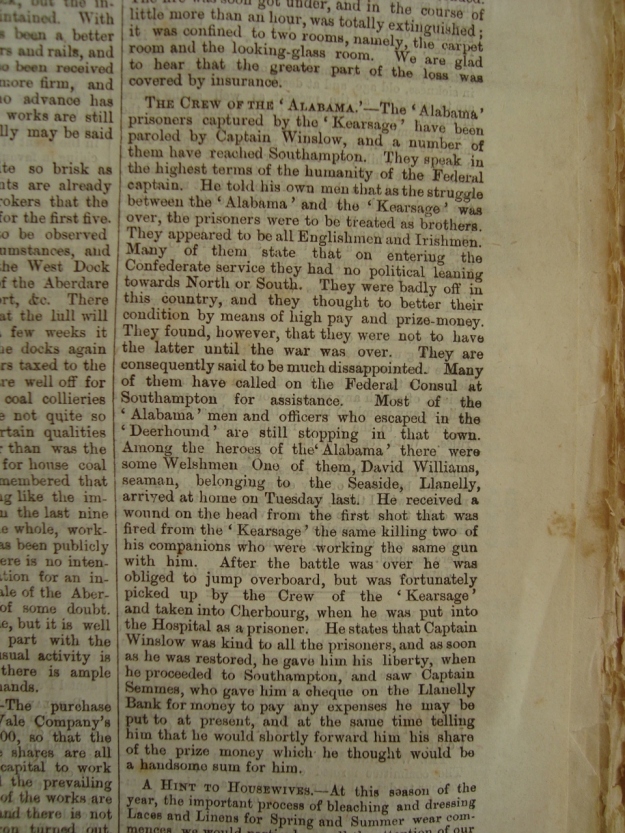In Britannia’s Dragon, I gave an account of the Welshmen who served in both the Union and Confederate Navies during the American Civil War, I knew that the names I mentioned there were likely to be only a relatively small number of those who actually fought, and in recent days another example has come to light. This was David Williams of Llanelli, who provided the following previously unknown first hand account of the last fight of the Alabama and its aftermath, together with an insight into the motives that drove British volunteers to serve in the war. I am trying to discover further information about Williams and his previous and subsequent histories, but unfortunately, it was a very common name in both Llanelli and Wales as a whole! Having said that, ‘David’ Williams might be synonymous with the ‘Samuel’ Williams, a fireman and known Welshman whom I named in my book and who appears in the list of wounded from the Alabama; I have not had a chance to check the likes of William Marvel’s book, The Alabama and the Kearsarge: The Sailor’s Civil War, which apparently provides detailed biographical information on the crew, so I would be grateful to receive further information from the many students of the Civil War navies.
This article is from the Llanelly and County Guardian for 14 July 1864; my thanks to Lyn John, vice-chairman of the exceptionally proactive Llanelli Community Heritage group, for discovering this reference and passing it on to me.

